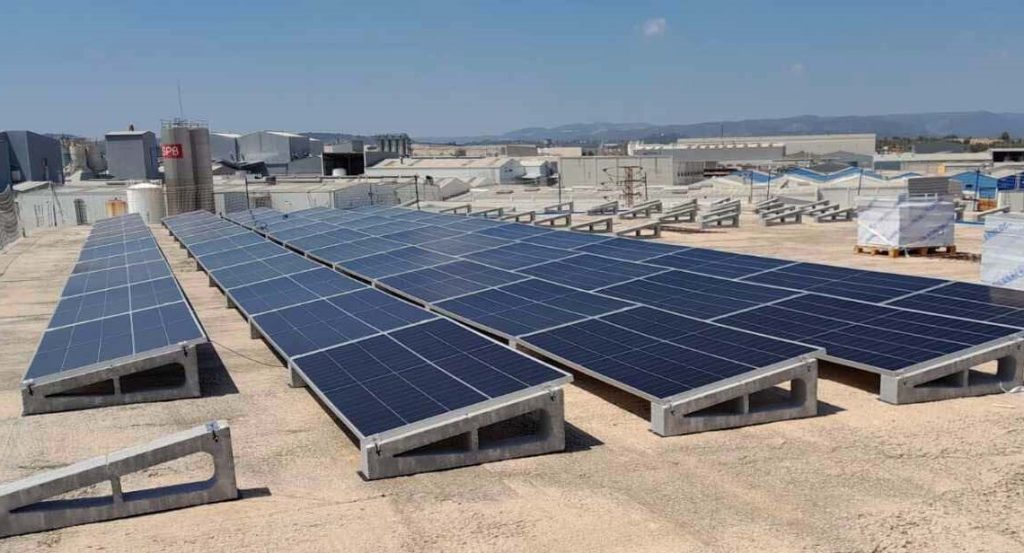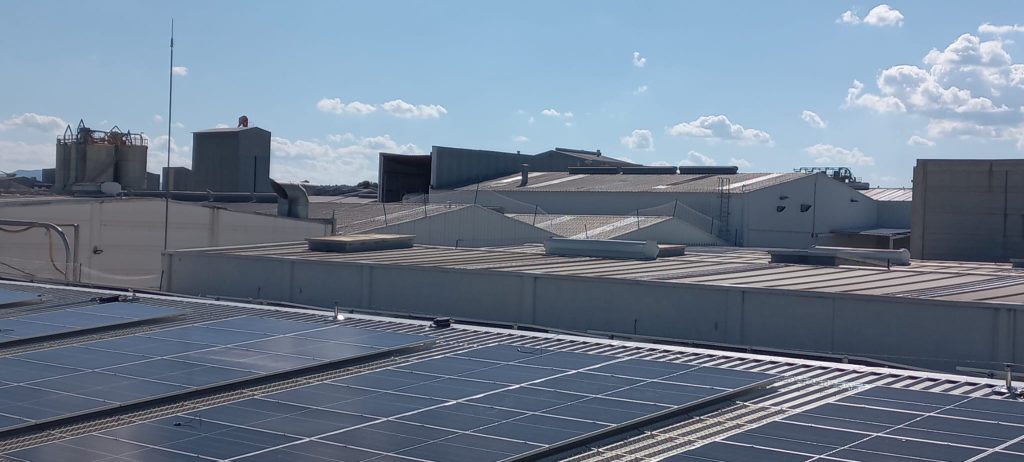- SPB goes one step further in its commitment to the environment and formalises a long-term clean energy supply contract (PPA) for 798 kWp.
GDES Efficiency will install on the roofs of THE SPB GLOBAL CORPORATION more than 1,400 solar panels on 3,600 m2 of floor space. This photovoltaic installation will allow SPB to cover part of its annual energy demand and avoid the emission of approximately 277 tons of CO2 per year.

SPB‘s commitment to clean energy is articulated thanks to a long-term clean energy supply contract (PPA), a market that is experiencing significant growth in Europe and in which Spain stands out as one of the main potential markets. PPAs supply energy at a significantly lower price than traditional suppliers.
For these two Valencian family companies that share the values of the culture of effort, innovation and sustainability, this agreement is “a clear reflection of the commitment of family businesses to contribute to a more efficient, less polluting and, therefore, more sustainable world”, says Héctor Dominguis, CEO of Grupo Dominguis Energy Services (GDES).
For the President of The SPB Global Corporation, Miguel Burdeos, this project is undoubtedly one of the most relevant, “not only because of the great importance it has within our environmental policy, but also because of the union between two companies like SPB Global and GDES, both Valencian, family-owned and leaders in their respective sectors”. He also points out that SPB continues to work “with an eye on the challenge of decarbonisation, energy efficiency, the use of clean energy and sustainability, and this action is another step towards achieving it, as the company has already carried out previous self-consumption projects in other facilities and signed financial PPAs against renewable generation promoters”.
For SPB, this project is undoubtedly one of the most important. Not only because of the great importance it has within our environmental policy, but also because of the union between two companies such as SPB Global and GDES, both Valencian, family-owned and leaders in their respective sectors. At SPB we continue to work with our sights set on the challenge of decarbonisation, energy efficiency, the use of clean energy and sustainability, and this action is a major step towards achieving it.
Miguel Burdeos, President of The SPB Global Corporation
Self-consumption photovoltaic solar energy is one of the best solutions for the sustainable development of industry, as it not only reduces energy consumption, but also limits external energy dependence and, in the specific case of PPAs, “it is an excellent tool that allows companies to dedicate their resources to business, without renouncing the advantages of self-consumption”, adds Héctor Dominguis.
PPAs, a growing trend in the industrial energy sector
PPA (Power Purchase Agreement) contracts are gaining ground in the industrial energy sector, as they guarantee industries stable and competitive prices for a period of between 10 and 15 years.

Through this PPA contract between The SPB Global Corporation and GDES Efficiency, energy will be produced at the company’s facilities in Cheste at a fixed price for the duration of the contract, which will allow SPB Global to obtain energy savings from day one, as well as to plan its production and future investments, with accurate, competitive cost projections and without possible cost overruns in the expenditure of the energy generated at its plant. The company will also gain energy independence with which to weather the ups and downs of the recent crises and diversify its supply sources in line with its commitment and sustainability objectives.
As a technology partner, GDES Efficiency, as the generating company, will be responsible for obtaining all permits, licenses and agreements required for the construction, as well as for guaranteeing, operating and maintaining the photovoltaic installation, and will be in charge of the global investment necessary to start up the project, taking care of the design, processing, execution and operation of the photovoltaic plant, while the consumer – in this case SPB – undertakes to purchase the agreed energy for the determined period of time.



